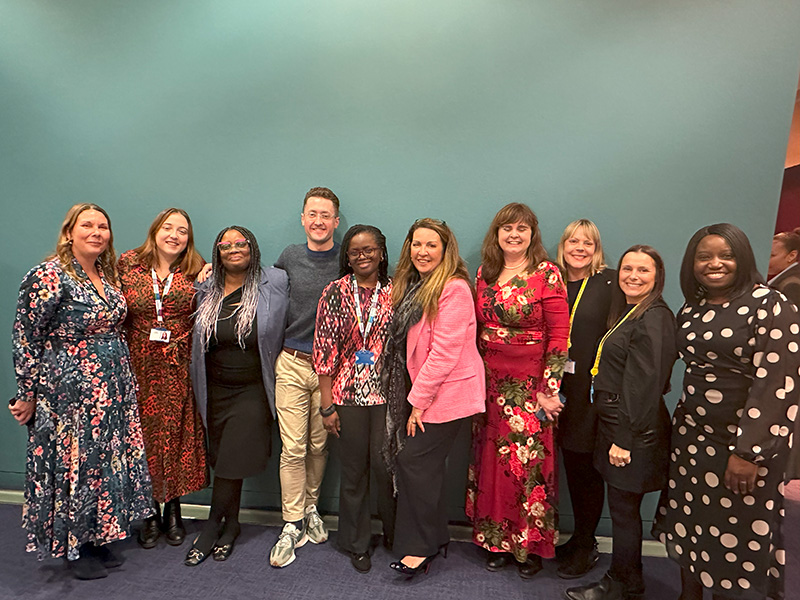By Sarah Calvert psychotherapist and psychosexual relationship therapist
 As lockdown rules are gradually relaxed, I’m meeting more and more people who have enjoyed the period at home and are dreading having to go back to the ‘busyness’ of pre-Covid life.
As lockdown rules are gradually relaxed, I’m meeting more and more people who have enjoyed the period at home and are dreading having to go back to the ‘busyness’ of pre-Covid life.
We’ve all had different experiences during the pandemic; some have continued to travel to a workplace, others have been furloughed, and many have worked from home, often having to balance caring for others and homeschooling with their day job. Nonetheless, life as we knew it has changed for everyone.
The age of the introvert
A break from routine gives us time for reflection; it also gives us space, and a different experience, which for many, has been a huge contrast to how they were living their lives. Our society has always celebrated busyness, and often, our self-identity and value can be tied up with how busy our diaries are. With social occasions cancelled during lockdown, you would expect the introverts amongst us to have thrived. What’s interesting is that I’ve found many people who considered themselves extroverts have discovered they actually prefer a more introverted way of life. It is the experience of contrast that helps to clarify and show us our preferences.
As we start to embrace the ‘new normal’, it’s worth considering which aspects of normal we actually want to return to. If you want to maintain the balance that you’ve found during lockdown, now is the perfect opportunity to reset work patterns and decide what does and doesn’t work. Communicate your needs positively and anticipate any blockers that may come up so that you are less likely to be met with resistance.
New ways of connecting at work
Covid-19 has proved that being in the office is no longer paramount to individual or company performance. We’ve quickly adapted to homeworking with virtual meetings becoming the norm, and, in many companies, it’s proven to be not only viable but often more productive and resource efficient. But how do you maintain the more informal connections within a workplace that help companies flow well? If you want to reap the benefits of working from home, you may well need to think about how you can facilitate the ‘softer’ ways of connecting with colleagues, which can’t be achieved through structured video calls.
These relationships serve us as individuals and help to solidify and deepen our working connections and sense of belonging to a company. It’s important to consult with others to discuss their needs and preferences – perhaps you can suggest creating working groups that come together on certain days of the week, for example. Remember, being a leader is having the capacity to translate vision into reality, so dare to think about how to do things differently.
Reframe the social obligations
If you’re dreading returning to the social commitments that come with your job — team drinks on a Friday night in the pub, for example – ask yourself, what’s their function? What purpose do they serve? Distil the intention of the event, i.e. building team morale, letting off steam, connecting with colleagues, and challenge yourself to find another, perhaps more effective alternative. Rather than talking about what you don’t want to do, be prepared to start discussions around other ways to connect that won’t encroach into personal or family time. Maybe it’s a team lunch instead. Remember, you aren’t the only one who has experienced a different way of being during the last few months. A lot of other people will have reconsidered their priorities, enjoying more home or family time and a less fraught schedule, so you may be pleasantly surprised by how many people feel the same way.
Flexibility goes both ways
Companies have had to be more flexible in their approach to accommodating caring obligations whilst people have been working from home, and many employees who have enjoyed greater control over managing family and working responsibilities don’t want to lose that. There’s an opportunity for a seismic culture shift to a more effective, less depleting way of working that could prove positive to employee mental health, which in turn, positively impacts the business.
However, it’s important to remember that this adjustment is a work in process – managers and employees won’t have all the answers straight away. It will take a while to adjust and refine the new way of being. This is a new creation and, like all new creations, it will take time to hone.
Redefining success
For many people, this period of reflection has made them question what success means to them. Take time to think about what you really enjoy and what nurtures and invigorates you – both in the workplace and in your personal life. You might not want to socialise as much or be as busy, and that’s ok. Give yourself permission to do what feels right to you rather than feeling obliged to get back on the ‘treadmill’ of life. What have you enjoyed as a family or in your close relationships? If you’ve loved spending more time together or have adapted to a similar way of living, think about how you would like to take that forward. Set time aside every week to continue to do those things, big or small, that have made you happy.
Covid-19 has turned our world upside down, but in every crisis there’s an opportunity. Businesses need to recognise that, as the restrictions lift and we can return to something of a familiar structure, if the structure is too rigid, people will react. Individuals should take this opportunity to be honest and brave and to speak out so that we don’t fall unhappily back into our old, outdated patterns. That way, we can work to ensure the new ‘normal’ evolves into a more conscious approach to the way we live our lives.
 About the author
About the author
Sarah Calvert is a UKCP, CORST psychotherapist and psychosexual and relationship therapist. She has developed her practice working privately, within the NHS and in the charity sector and has accumulated a rich and varied experience dealing with many different issues and people from all walks of life. Her passion lies in working with psychosexual and relationship issues.
If you are a job seeker or someone looking to boost their career, then WeAreTheCity has thousands of free career-related articles. From interview tips, CV advice to training and working from home, you can find all our career advice articles here.








